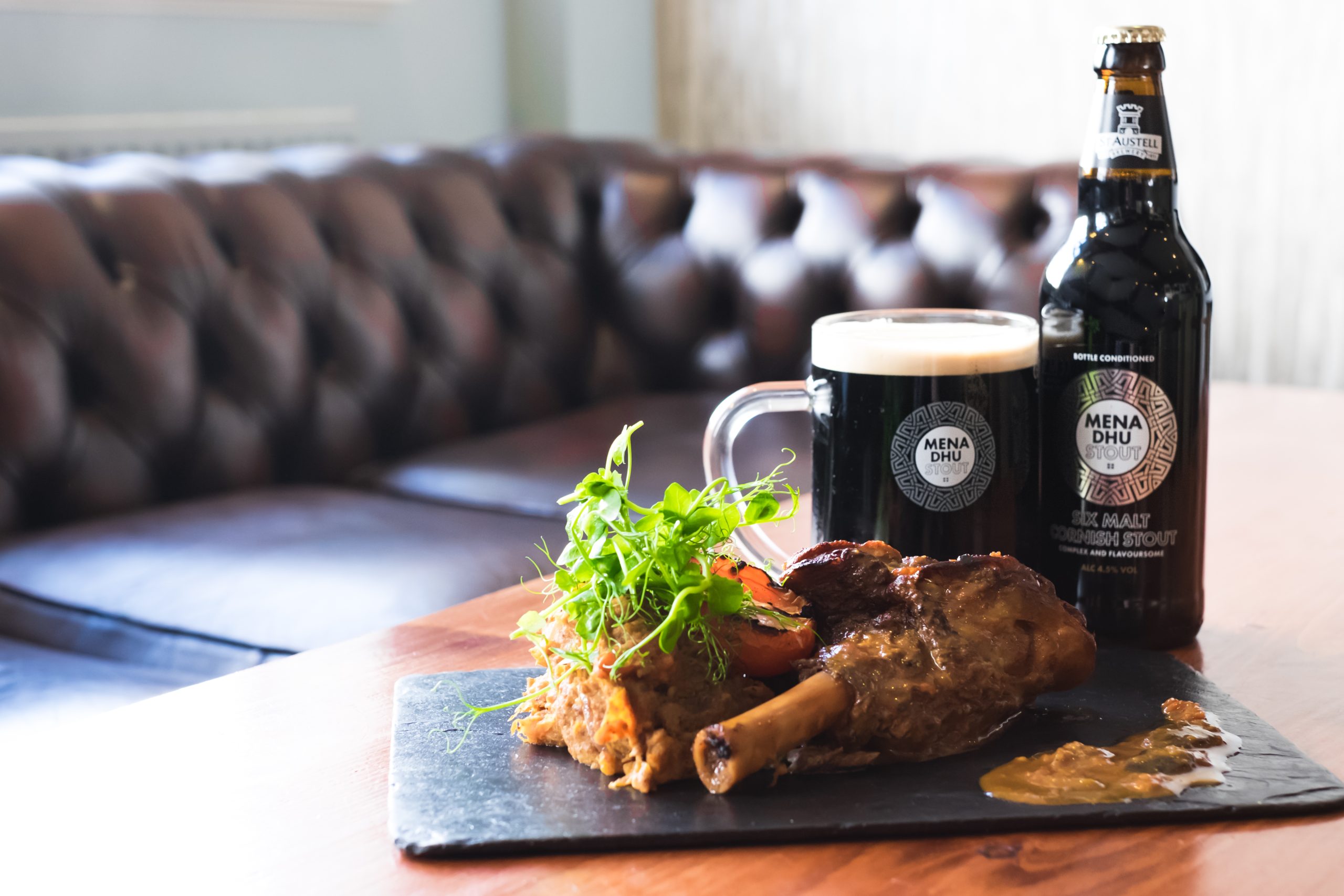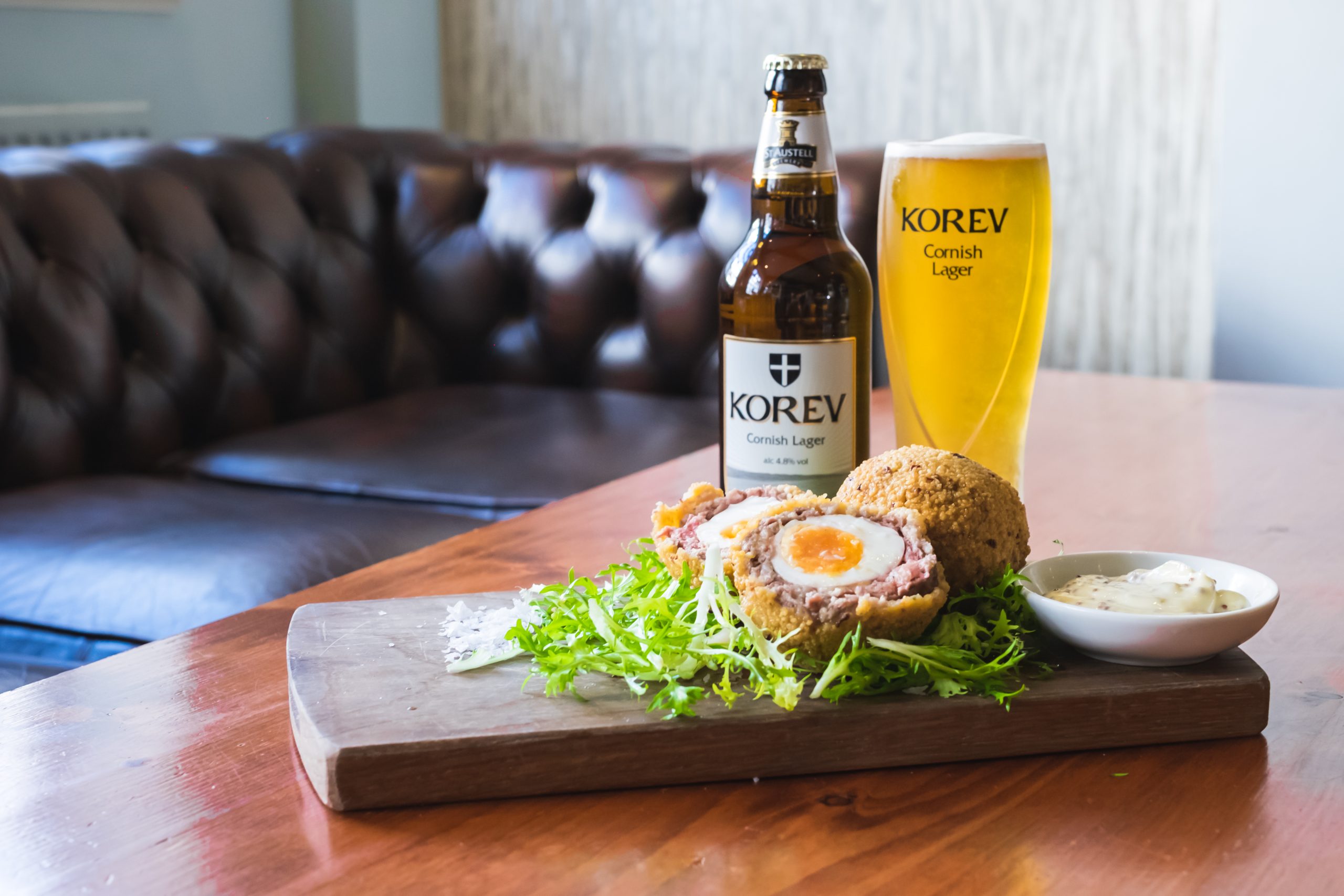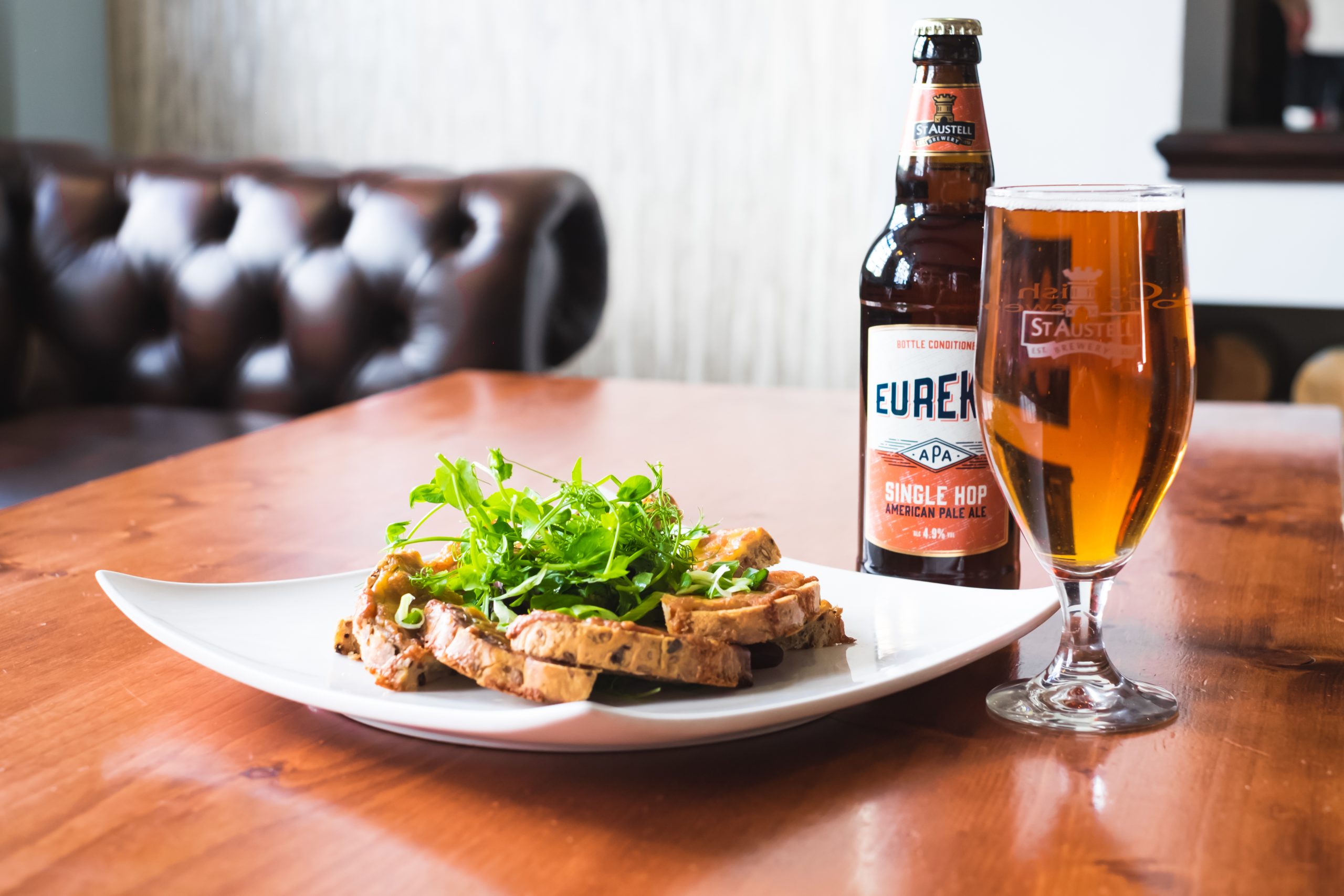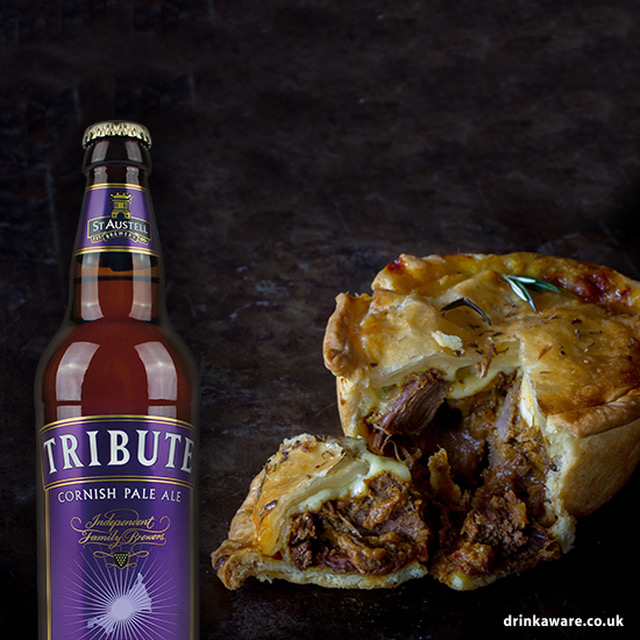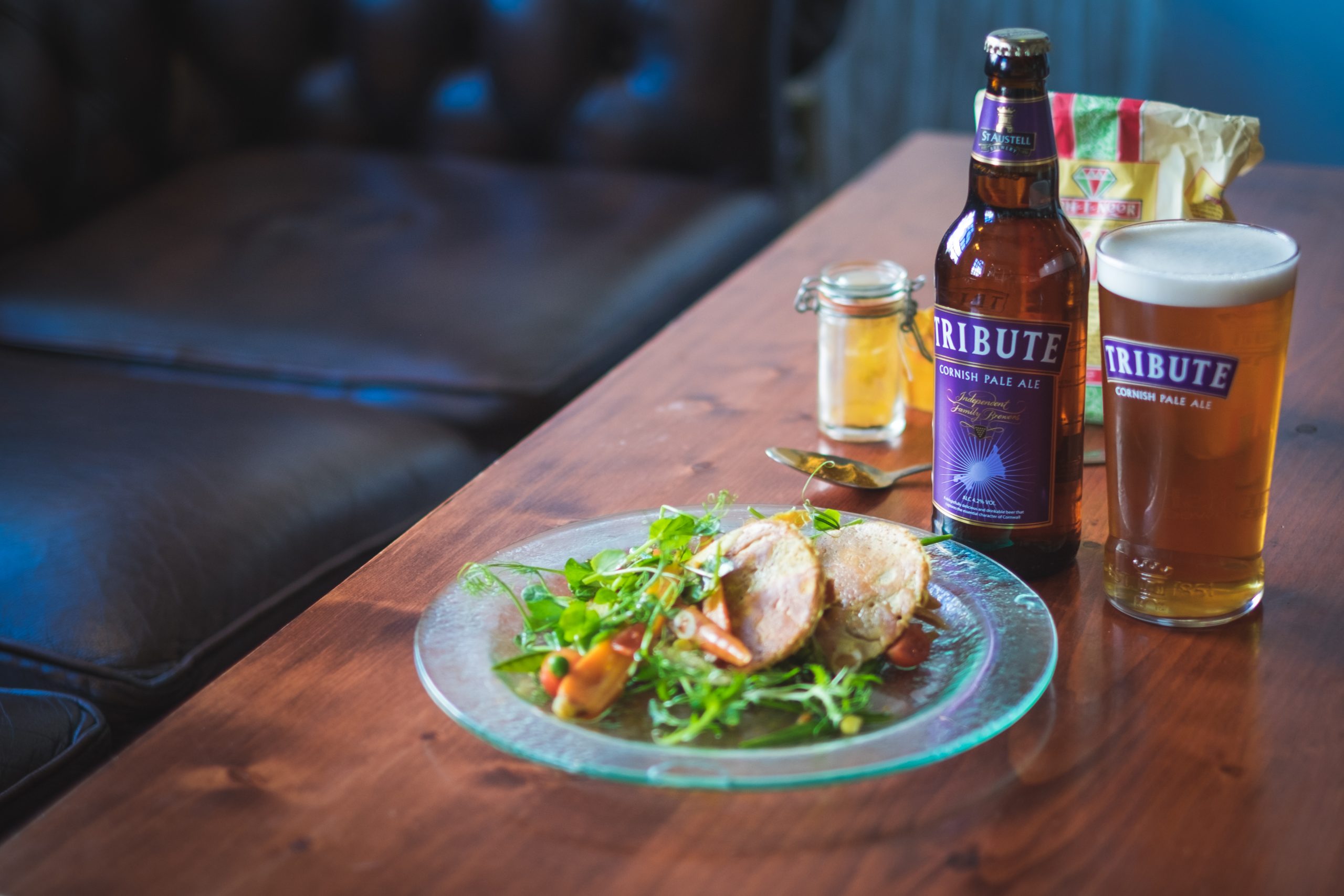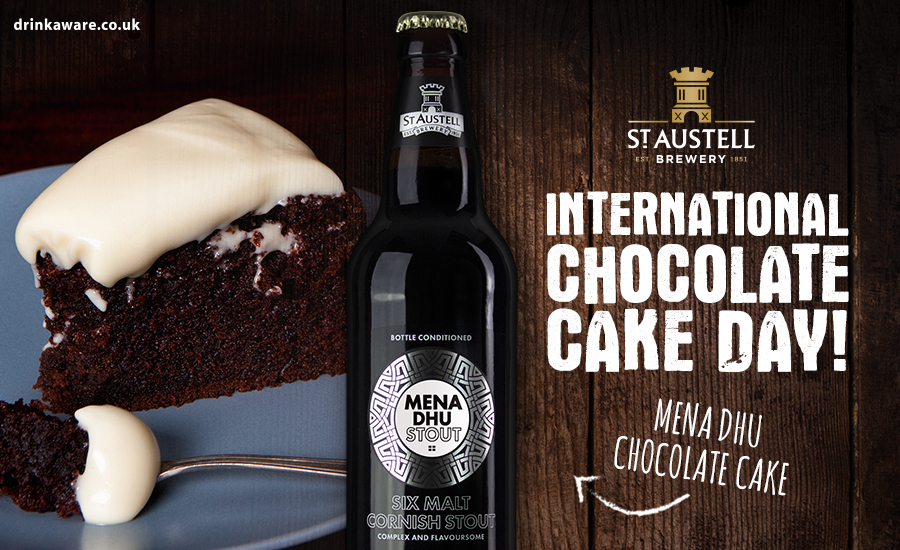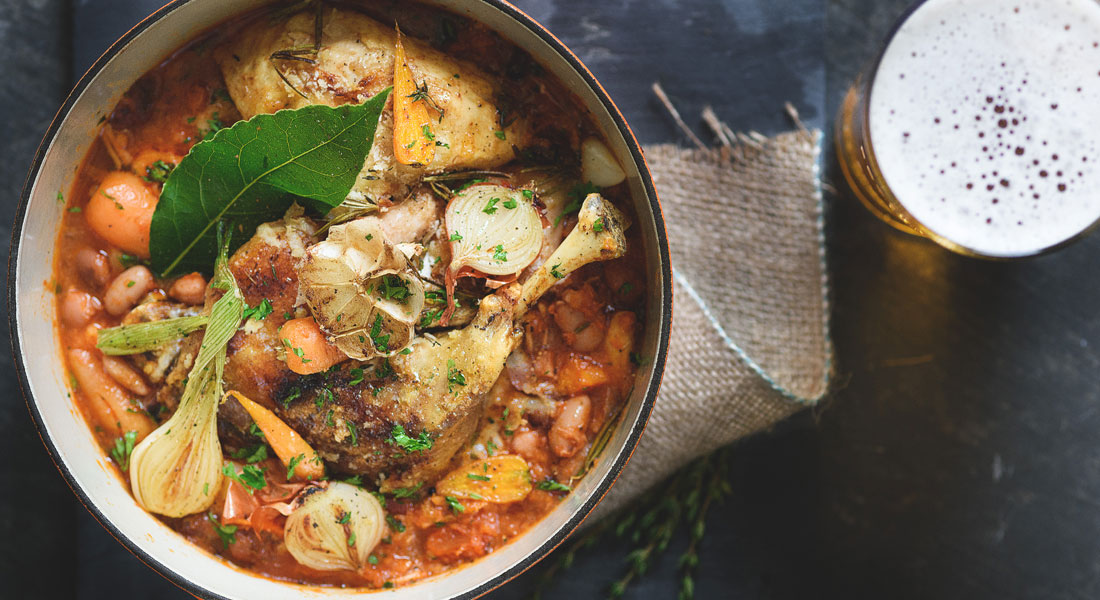
Cassoulet is a traditional French casserole dish that contains a selection of meat and beans. It gets its name from the ‘cassole’ dish – a traditional fired clay vessel. This is a Cornish version by Chef Prosenjit Sanjay Kumar with Tribute ale.
By placing the ingredients in layers, it helps to build up the wonderful and complex flavours of the cassoulet. Canned beans have been used for convenience. By adding Tribute ale, the cassoulet gets its rich and malty aftertaste that complements the tomato and smoky bacon flavour.
Serves: 4
Ingredients
4 Tribute flavoured pork sausages
50g hogs pudding, sliced thinly
1 duck leg, slow cooked in its own fat
25g pulled pork belly
1 chicken thigh, roasted
2 slices of streaky bacon, chopped finely
100g fresh white breadcrumbs
Salt and pepper
50g can of three bean salad
1 dessertspoon olive oil
2 Spanish onions, sliced fine
3 cloves of garlic, chopped fine
1 sprig of thyme
2 bay leaves
6 Chantenay carrots, cooked
1 pint of Tribute Ale
2 level tablespoons tomato purée
Method
- In a flameproof casserole dish, heat the oil over a medium heat and brown the sausages, turning them occasionally. Then set them aside on a plate.
- Add the streaky bacon to the dish and cook. Turn the heat up and toss it around for 5 minutes, until the bacon is golden at the edges. Transfer the bacon to the plate with the sausages. Repeat the process with the hogs pudding.
- Turn the heat down to medium, add the onions to the juices left behind and cook for ten minutes until soft, stirring from time to time.
- Toss in the garlic and cook for another minute. Next put a third of the beans followed by half the onions. Sprinkle with a third of the fresh thyme leaves and season well with salt and pepper. Add half the sausages, bacon and pulled pork followed by a third of the beans, thyme and seasoning. Then add the remaining sausages and onions and finally the rest of the beans and the remaining thyme, pushing sprigs of thyme and bay leaves in amongst everything.
- Pour in one pint of Tribute ale. Measure (850 ml) hot water, whisk in the tomato purée and pour this over the beans. Place the cooked duck leg and chicken thigh into the casserole dish and cover it with a fitted lid. Put the dish in the centre of a pre-heated oven and cook on medium heat for half an hour.
- After half an hour, open the lid. Sprinkle the breadcrumbs and the carrots all over the top and bake (without a lid) for a further hour until the beans are completely cooked through.
- Serve the cassoulet with a rustic baguette and wash it down with Tribute.
Where to find Tribute:
Bottled Tesco is available at Tesco, Asda, Waitrose, Morrisons, Sainsbury’s, Majestic, Booker, Londis and Ocado (online), plus Spar and Co-op supermarkets in the South West.
It’s available in the South West in 500ml cans at Sainsbury’s, Waitrose, Londis and Spar.
Tribute and other beers are available from our Visitor Centre and online shop: https://www.staustellbreweryshop.co.uk
For more about Tribute, go to www.tributeale.co.uk.
